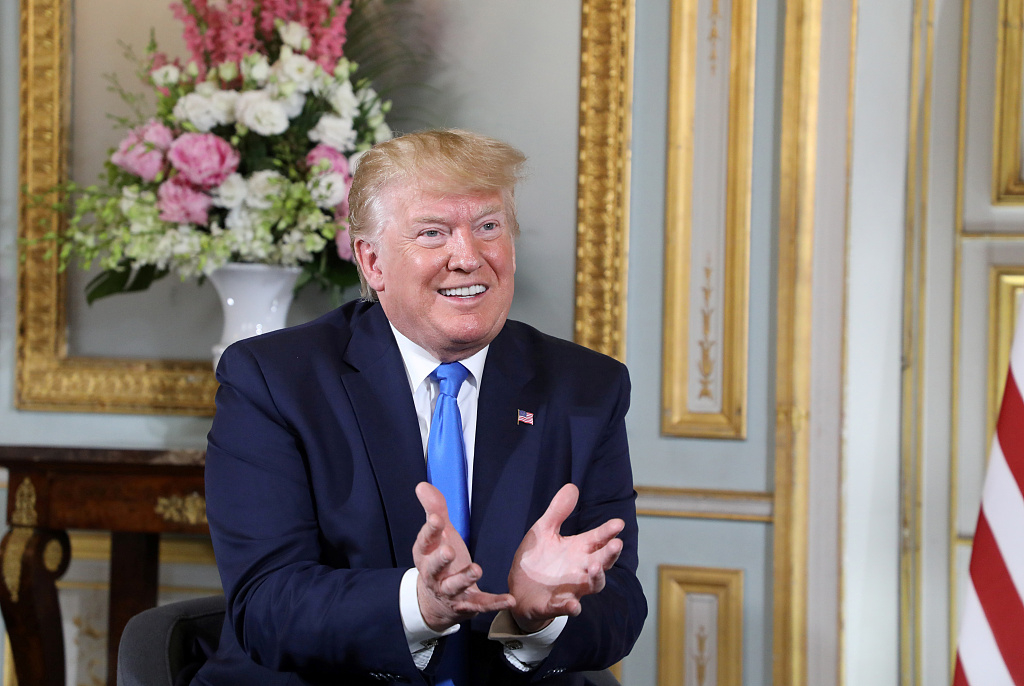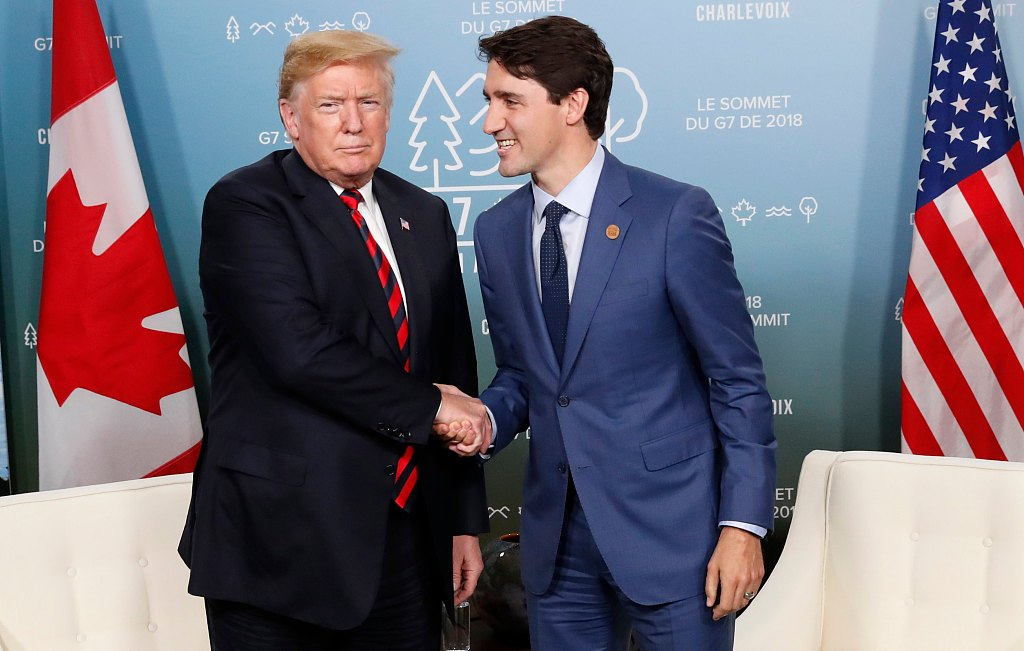

Editor's note: Bobby Naderi is a journalist, current affairs commentator, documentary filmmaker and member of the Writers Guild of Great Britain. The article reflects the author's opinion, and not necessarily the views of CGTN.
The global effects of Trump’s trade war have emerged.
The value of a thing is what that thing is supposed to bring or achieve. President Donald Trump’s trade row with China has failed to transform itself into something of value and substance, immediately or in the long run.
His tariffs promised to shower the United States with more jobs and affluence, but only brought financial loss and misery to businesses and households. The most lasting consequences of his actions have also been the dismantling of global economy. The trade war has slowed down global growth, affecting the natural wealth of other nations and the local economies of household, neighborhood and community.
Strange enough, the disruptor-in-chief and China hawks in Congress refuse to press the pause button on their trade war instincts and anti-multilateralism agenda. They use false claims to import some of their most odious ideas into the mainstream. And they enjoy being acknowledged and appreciated for all the wrong reasons.
The global nature of their growing trade tensions have been taken in by the Group of 20 finance leaders as well. They represent 19 of the world's largest developed and developing nations and the EU, and they are not treating the trade war like any other issue or even less than that.

U.S. President Donald Trump gestures during a meeting with French President Emmanuel Macron (not pictured) at the Prefecture of Caen, on the sidelines of D-Day commemorations marking the 75th anniversary of the World War II Allied landings in Normandy, France, June 6, 2019. /VCG Photo
This week in Fukuoka, Japan, the finance ministers issued a communique, warning that trade and geopolitical tensions have intensified, creating risks to global growth. The G20 finance ministers and central bank governors are not alone. International Monetary Fund Managing Director Christine Lagarde also warned that the deepening trade conflict has hurt global growth and economies, and that the priority is to resolve the current trade tensions.
This shows how Trump's trade war with China is like an onion; opening it has made everyone cry. Little did he realize that it does not matter how long the conflict continues, how much money American businesses and households are losing in the form of stealth tax, and how much criticism it has received worldwide. It is the amount of political vibration his trade war quagmire has radiated in the world that matters.
As it happens, the IMF has also warned that the tariff war could knock 0.5 percent from global GDP output in 2020. Netherlands-based investment bank ING has said the damage will make 2019 the worst year for trade. Bundesbank President Jens Weidmann and Goldman Sachs analysts have all said the dispute could reduce global trade by one percent in the medium term, and if Trump ups the ante, the peak boost to core inflation could reach 0.9 of a percentage point, alongside a dent in U.S. GDP.
Tell that to the president and those still distracted by the memory of past glory in Congress with so much political interest directed elsewhere. They see no impact on U.S. growth from the worsening trade conflict, claiming they have taken steps to protect consumers from disruptive tariffs. These are the same households that Federal Reserve officials, including New York Fed President John Williams, say are "on the front line of the trade war." They say a boost to inflation is right around the corner, and with a potential drain on confidence among businesses and financial markets.

U.S. President Donald Trump shakes hands with Canada's Prime Minister Justin Trudeau in a bilateral meeting at the G7 Summit in Charlevoix, Quebec, Canada, June 8, 2018. /VCG Photo
No doubt the damage from the U.S. trade war has made 2019 the worst year for global trade and economy. It is still happening in plain sight and it has negatively affected the whole world. The destruction is not just happening elsewhere; it is now true of the U.S. as well. The full impact of the tariffs and stealth tax have fallen on American consumers and businesses, a drain on the economy beyond the direct cost of the levies, which Goldman Sachs analysts say did cost 1.4 billion U.S. dollars a month last year.
This should spare no evidence of the coming economic catastrophe. The dispute has reached beyond the world's two largest economies as many other economies are also performing bad. This should deliver a rebuke of Trump's obsession with tariffs and trade conflicts. It represents a symbolic condemnation of his decision and exerts political pressure on him to normalize the abnormal.
The reality of the situation is that Trump cannot go on forever threatening China and others with disruptive tariffs. The global unraveling has come. Trump is better off accepting it as a signal that his trade plans are not sound, rebuild those plans, and set sail once more toward the coveted goal of global community, which is recognition of a rules-based international order.
Trump must realize that this is not part of the alternative-fact universe he loves to critique. The global effects of his politics of disruption as usual and economic destruction have emerged. Things have gone off as planned and those with more financial tools and tariffs have not prevailed.
(If you want to contribute and have specific expertise, please contact us at opinions@cgtn.com.)

Copyright © 2018 CGTN. Beijing ICP prepared NO.16065310-3
Copyright © 2018 CGTN. Beijing ICP prepared NO.16065310-3